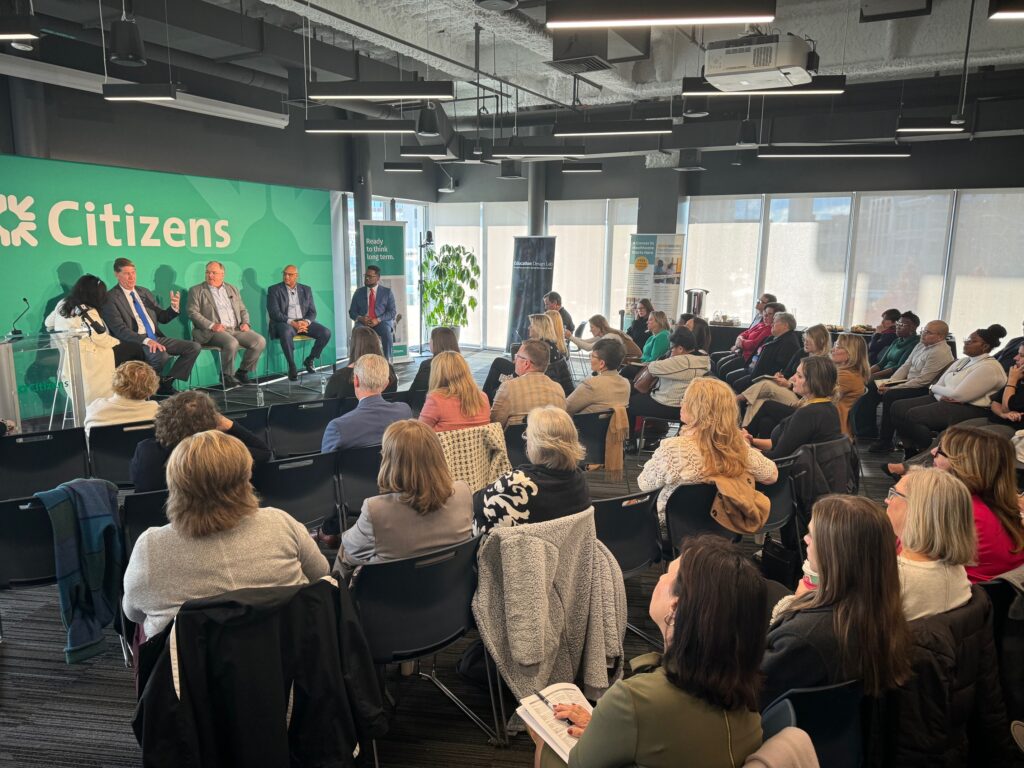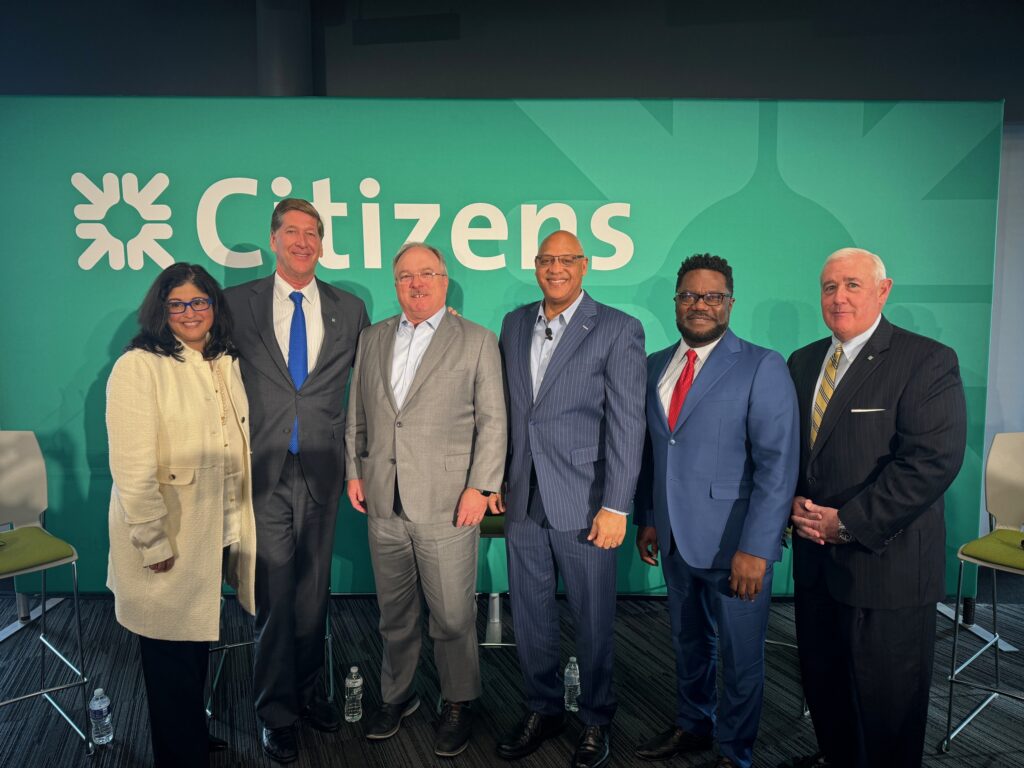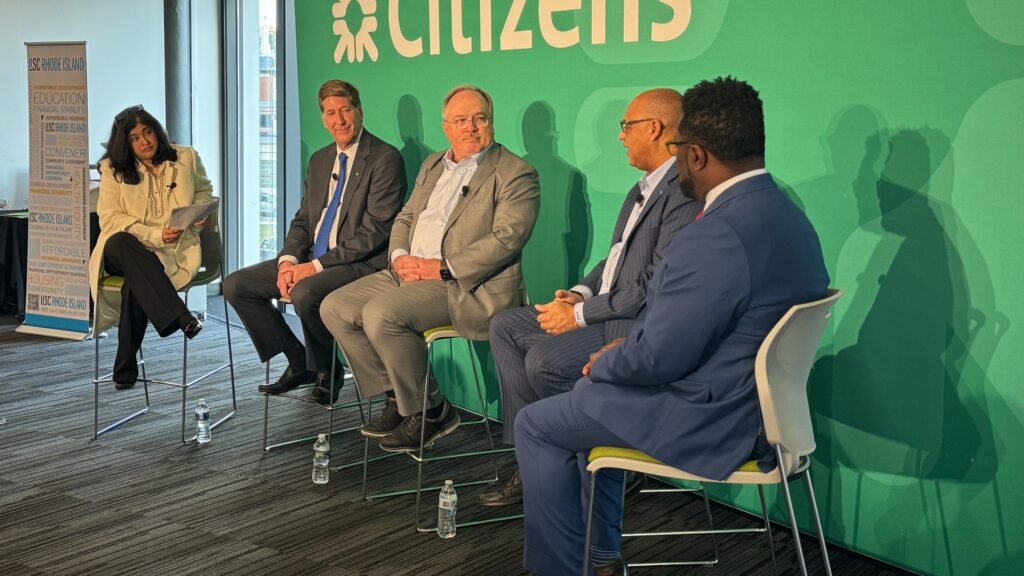PROVIDENCE—Citizens Financial Group has pledged $600,000 to local workforce development efforts and training programs, with $200,000 dedicated to the Citizens Community College Accelerator initiative at the Community College of Rhode Island.
The announcement came last week at a Citizens’ event in Providence, which featured a discussion on equitable initiatives that can strengthen and diversify the state’s workforce. The panel was moderated by Skills for Rhode Island’s Future Executive Director Nina Pande and featured Lifespan President and CEO John Fernandez, Education Design Lab President and CEO Bill Hughes, and Local Initiatives Support Corporation (LISC) CEO Michael T. Pugh.
“Two-thirds of adults don’t have degrees,” Hughes shared during the discussion. “We’ve fallen in love with a time-based credential…and it just keeps marching along and if you don’t get what you need at the right exact point then you just get left behind and that’s left two-thirds of our people behind. So, the challenge really is how do we catalyze and activate those people? So, what we do at the [Education Design] Lab is we use a human-centered design approach.”
The fund also looks to expand existing training programs led by Citizens’ partners, including Bank Forward, the YMCA of Pawtucket, Genesis Center CHOP Kitchen, and Crossroads. These programs are focused on offering technical skills training and career counseling, according to Citizens Chairman and CEO Bruce Van Saun.
The YMCA of Pawtucket and the Davies Career Academy are leading efforts to recruit early learning educators; the Genesis Center CHOP Kitchen has been teaching residents culinary skills; the Rhode Island Hospital and Crossroads have been training BIPOC healthcare workers; and the Bank Forward program looks to diversify the state’s financial services sector.

The $200,000 investment at the Community College of Rhode Island looks to provide two years of Education Design Lab services and technical support for two new training pathways programs focused on manufacturing and insurance.
“This new class of credentials called ‘micro pathways’ make learning more portable, flexible, affordable, relevant, and visible. Their design to stack into a degree include 21st-century skills and result in a job at or above the local median wage,” Van Saun shared at the event.
The decision to focus these pathways on manufacturing and insurance comes from the rapid growth of both industries. These courses would be accessible opportunities for residents to learn prevalent skills, according to Van Saun. The project looks to simultaneously stabilize and diversify the regional economy while producing innovative course structures that can be replicated by community colleges across the country.





